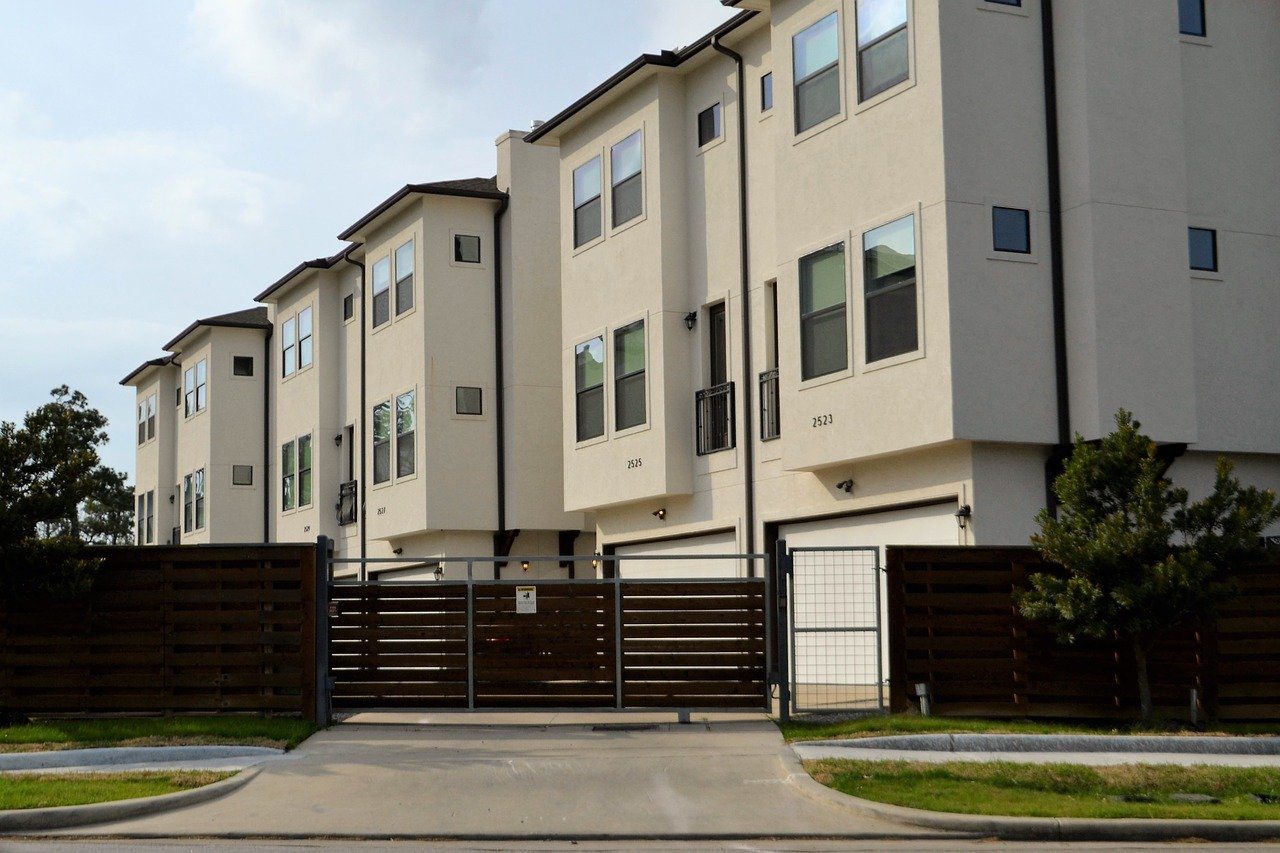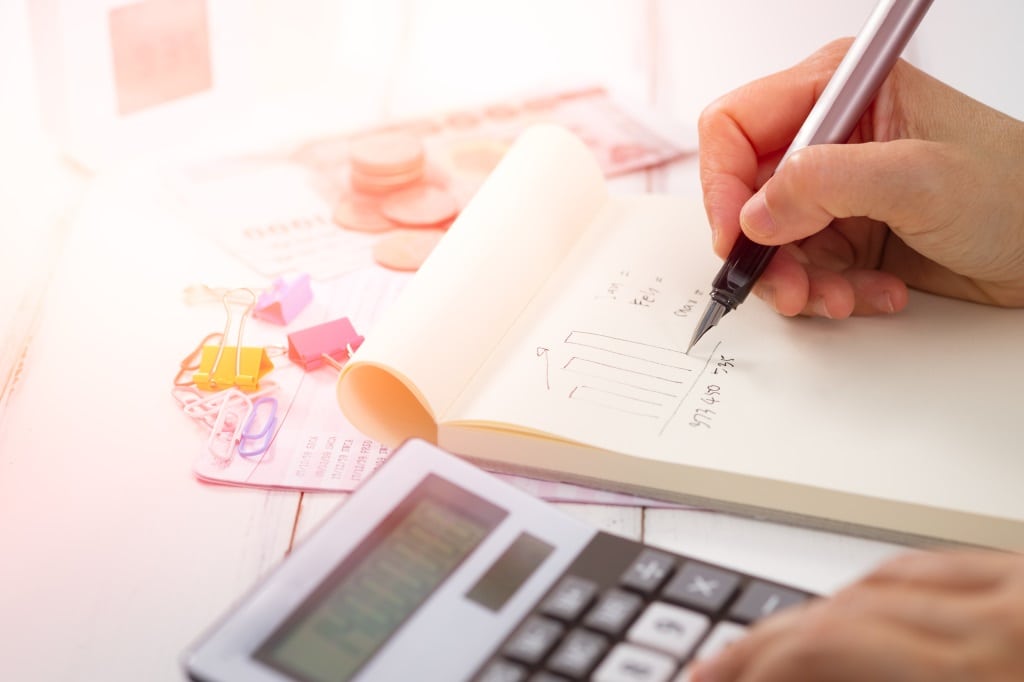Do you own an investment property having tenants in it? Then you must know that more labor is involved in holding an investment property than just collecting rent, covering the mortgage, and keeping the profit. Knowing all the maintenance costs associated with owning a rental property can be helpful for you.
Maintenance costs may include routine, seasonal, appliance, emergency, and replacement (if any). These costs usually level out over the years, but a wise investor would anticipate expenses and set aside money for unforeseen costs in a reserve account. You may spend $500 one month, $100 the following month, and nothing the month after.
Some tenants may utilize it, and others may exploit your property. But the fact is that everything needs repairing after some time. And this costs money. So, understand typical real property maintenance costs in this guide!
What Are Maintenance Fees?
It’s thrilling to rent a new house, but there are many things to consider before deciding.
Whether you want to use the apartment or condo as your permanent residence or as a rental property, you will need to budget for more than just your rent and housing expenditures each month.
A maintenance fee covers maintaining some accounts, a recurring payment or a renewal fee. A maintenance charge may be attached to some reports, including checking, savings, and card accounts.
The monthly maintenance expenses of owning an apartment or condo are separate. The cost of maintaining the structures, grounds, and communal areas is included in the monthly charge.
Depending on the area and size of the flat, your monthly payment might range from $50 to more than $1,000. The value of a property and its monthly fees can be significantly influenced by location, mainly if it is located in a desirable region like a city or close to the beach.
Who Deals With The Maintenance Fee?
Other businesses, such as those dealing with timeshare leases, may also collect a maintenance fee to aid with the care of the property connected with the membership.
The condos or homeowners association (HOA) is a group that holds meetings to deliberate on regulations and then enforce them for the community’s residents. The organization also has monthly meetings to discuss and time to engage for work that needs to be done for the entire building and evaluate work projects.
When a condominium is bought, the buyer automatically joins the association and agrees to pay the HOA’s required recurring fee. This cost is known as a condominium or condo fee, while some businesses may also call it a homeowners association fee/ Maintenance fee.
Coverage of Monthly Maintenance Fees
Investors should consider the monthly maintenance fees and perks, and facilities that come with the price when purchasing a condo. Various services and costs may be covered by monthly maintenance fees, such as:
- The entrance and communal spaces
- Walkways and balconies
- Gardening
- Grounds for tennis
- Staircase for a swimming pool
- Clearing snow
- Septic systems
- Trash removal
- The physical appearance of buildings
If a condo’s monthly maintenance expenses are reasonable, it may hurt the property value. The initial offer is decreased to lure buyers, and the property remains on the market longer than comparable properties.
However, a condo is only sometimes a solid investment or well-maintained simply due to its cheap maintenance charge. Investors and individuals wanting to purchase a condo as their primary residence should consider the condo fee and whether it is too much or too cheap, as well as if the building has been adequately maintained.
Knowing The Rule of Thumbs In Rental Property Maintenance Costs
Property management teams use a few general guidelines to project annual maintenance costs for rental properties. The underlying objective—to ensure that you have sufficient money saved for routine maintenance and unanticipated emergencies—remains the same, even though each rule yields similar figures despite distinct techniques.
Depending on the sort of property you have, a few fundamental guidelines to remember are as follows:
- 50% Rule: The “50% Rule” states that you should reserve half of each month’s rental revenue for expenses such as taxation, insurance, upkeep, and repairs.
- 1% Rule: The “1% Rule” states that annual maintenance will cost around 1% of the property’s worth. Thus, maintenance will cost about $2,500 for a property priced at $250,000.
- The 5X Rule: It states that you should figure yearly maintenance expenditures that equal an average of 1.5 times the monthly rental charge. You should budget around $1,800 per year for maintenance if your home rents for $1,200 per month.
What Percentage Of Revenue Should Be Spent On Maintenance?
The calculations offer tested suggestions to help you be ready for what’s next, even if there are no specific regulations for how much you should spend for property maintenance. Remember that you might only use part of the budget and decide to put the extra money toward significant repairs or enhancements over the following year or years.
Budget between 2% and 5% of the value of all your replacement assets (RAV). This indicator, known as %RAV, is derived as a percentage of the cost and worth of your building. A helpful Indicator for facilities and maintenance managers is %RAV.
It aids in deciding whether it is time to acquire a new item outright vs when it is suitable to spend cash on upkeep.
Square Footage Rule
Rule of Square Feet tells us about the $1 per square foot budget for yearly maintenance expenses. A 2,000 square foot lease will cost $2,000 a year to maintain.
How to calculate your home’s square footage is probably not the first thing on your mind when you make the purchase. And although it could appear to be a trivial statistic, it’s one of the most crucial elements in determining a property’s worth.
Begin with a few essential items while getting ready to calculate the square footage of a house, condominium, or townhouse:
- Pencil and pad
- Calculator
- Measuring gadget
- Light
- A measuring tape
If the asset is a uniform rectangle, you only need to calculate the length times the breadth. For instance, your property would be 1600 square feet if your one-story house was 80 feet wide by 20 feet long (80 x 20 = 1600).
The majority of homes have more intricate floor designs, though. In this situation, it’s beneficial to calculate the square footage using these straightforward procedures.
- Mark every room you have to measure on a rough drawing of the complete area. Include a separate “room” for entryways and corridors
- Each room’s length and breadth should be measured in feet. To determine the square footage of that room, multiply the length by the breadth. For instance, a bedroom measuring 14 feet by 22 feet has a square footage of 240 (14 × 22 = 308). Type the total square footage of each room in the area provided on your drawing
- Add together the measurements from each room to get the overall square footage of your house
Maintenance Costs
Maintenance costs are a must for the management, preservation, and upkeep of the rental property. Repairing a leaky pipe, changing soiled air purifiers, and gardening are all maintenance costs. When maintenance costs are incurred, the cost is subtracted from monthly rental income.
Let’s examine some typical upkeep costs for rental properties to be mindful of, along with unforeseen cost deductions.
Taxes
Property taxes are challenging to manage and can significantly reduce potential profits. Even while buying a rental property in a high-tax area isn’t always a negative idea, it’s crucial to research previous increases in property taxes to determine whether property taxes would go up if an owner-occupied house is turned into a rental.
Utilities
There needs to be an established policy regarding who pays for utilities. The landlord may cover a portion or all of the utilities, or the renters may be responsible for paying them all straight to a provider.
Regardless, only the individual whose identity is on the bill has access to the details about those invoices since the utility provider only records one name for each.
Usually, tenants possess utility bills where they may directly pay for things like power, water, sewage, and garbage. For exterior lights or a laundry facility, a tiny multifamily building could have a central meter for which the landlord pays the utilities.
For both multifamily buildings and SFR, utilities can be moved into an owner bank instead of being shut off during tenant changeover.
Electricity
For an electrical grid examination and repair, the typical Canadian electrician makes bills of roughly $408. Depending on the current defect, the cost varies from $207 to $649. Some electricians provide services for as little as $103 — mainly if the fault is minor and more in line with a do-it-yourself project.
Pest Control
Insects, beetles, reptiles, rats, and wasps are common pests to watch out for. Pest treatment may be necessary monthly or yearly, depending on the location of your rental asset. One-time pests like bees or squirrels that can sneak into the roof may need landlords to set aside money.
Insurance
If you rent out your house, you will get landlord insurance, which covers both responsibility and property. The kind of insurance coverage, the premium level, and the number of claims made for the property by current or former owners are all variables that determine the cost of landlord insurance each year.
HOA
The HOA management business simplifies receiving monthly HOA charges and dues. It’s a wise option to acquire copies of the HOA’s financial statement and revenue sheet and to inquire about any anticipated fee hikes or special taxes before buying a rental property.
Property Management Fees
Some landlords handle their rental homes, while others hire a seasoned neighborhood property manager. Depending on the firm and the region, property management costs typically range from 8 to 12% of the monthly rent.
Some managers demand one-time fees for renting or extending a lease, supervising significant renovation projects, or carrying out routine inspections.
See Also: How Much Do Property Managers Charge?
Vacancy
Your insurance plan will also outline any additional responsibilities you have to fulfill to keep your coverage in effect, such as:
- Turning off the water supply
- Locking all doors and windows
- Clearing away any debris from the building
- Performing overall property maintenance even if you’re away
During the vacant period, arrange for a dependable friend, neighbour, or family member to check in frequently. You carry this swiftly with a unique weekend visit or while you’re out doing chores in the event of a brief rental or unoccupied property.
Capital Expenditure vs Repairs and Maintenance In Canada
The expenditures of routine operations that maintain your property’s assets in their natural position are referred to as maintenance charges. They are often included under the category of repairs and maintenance (“R&M”) in your operational budget.
However, capital investments/improvements are expenditures you make to raise the asset’s worth. Though obvious, this contrast is crucial: while capital investments or renovations increase the asset’s market value and help your community or organization, maintenance (R&M) is categorized as an expense.
Move out Repairs
If your private rental house requires significant maintenance or building work, your tenants could have to temporarily or permanently leave it. There will be a few defective spots dotted around after residing there for a while.
Your tenants need to do some upkeep and repairs before leaving. The repairs must be made if you sell your house to satisfy the buyer, who may have even asked them during discussions. For tenants, the landlord often demands repairs before returning your security deposit.
You can handle certain repairs on your own. Still, others could require professional assistance due to convenience, lack of expertise or understanding, or repair requirements outlined in your lease. The following details show some of the most typical move-out fixes and what you may do to resolve them.
- Carpet stains
- Paint damage
- Scuff marks
- Drywall damage
- Other slight maintenance
- Scratches
- Dirt and dust
- … and more!
Emergency Repairs
Emergency repairs are required if the house’s and the property’s safety and security are in danger. Here are some examples of these:
- Significant pipe or roof leaks
- Faulty plumbing equipment
- Difficulties with the central heating system
- An unreliable power supply
- Unprotected locks that are damaged or malfunctioning
Check Out RENTING A HOME: Who Pays for Repairs at Rental Property?
CapEx
A corporation uses capital expenditures (CapEx) to purchase, develop, and maintain tangible assets, including land, buildings, machinery, and other assets. A corporation frequently uses CapEx to launch new initiatives or make expenditures.
Capital investments in fixed assets involve fixing a rooftop, buying equipment, or constructing a new factory. Companies use this financial investment to broaden their activities’ scope or add some potential economic gain.
Appliance Maintenance
Our everyday lives are made more accessible by the invention of modern gadgets. It’s incredible how much we trust our devices to complete simple chores like washing our clothes, cleaning our dishes, and keeping our food fresh.
We may take these things for granted and only recognize their value when they break. You might be wondering about the possible prices when it comes time to repair one of your appliances. Learn how much an appliance repair specialist often charges and how frequently you might anticipate needing their assistance.
Appliance maintenance may be expensive, particularly if you have large appliances that often malfunction or need care. According to homeowner studies, an appliance repair typically costs between $135 and $300, with an average cost of $220.
An expert in appliance repair may charge between $130 and $260 per hour. Note that shorter repairs may cost equivalent to an hour of labor even though they take less time. To save time and money, attempt to combine appliance maintenance wherever you can.
Most appliance repair specialists bill by the hour and charge a visitation fee. Ask if items like equipment, labor, and service fee are included in their prices and how they determine their rates.
Seasonal Maintenance
Snow clearance in winter regions, sewer cleansing in the autumn and spring, and tree and bush trimming away from buildings and utility lines are a few seasonal maintenance chores.
Mortgage
Generally speaking, you may anticipate that maintenance and auxiliary expenses will total 1% of the property’s worth. The monthly repair costs for a condominium or apartment are a separate expense from the mortgage payment.
The expense of maintaining the structures, grounds, and communal areas is included in the monthly maintenance charge.
Tips To Be On Top of Your Rental Property Maintenance Cost
How to tackle higher monthly maintenance costs? Here we’ve listed a few tips and guidelines for you to run your maintenance procedure smoothly:
Plan Ahead
Planning for everything is futile. It can prove challenging to restore your rental home if a cyclone or storm passes through your neighborhood and causes significant damage. There are, nonetheless, known costs that you can budget for.
For instance, the external paint of a building typically lasts four to ten years. Every 15 to 25 years, a rooftop has to be updated. You can pay for these improvements and fixes in the future because your tenants will likely wait to seek them.
Choose the task type that is most crucial by looking at the upcoming year. This can entail repairing the sidewalk or upgrading the HVAC system. You can also decide which additional significant tasks you want to take on.
Preventing unforeseen issues connected to routine maintenance by planning extensive repairs in advance. You may manage your spending for maintaining the rental property with its assistance.
Know The Things You Need To Repair
While plumbing and faulty wiring may not appear to be complicated, they still take time and knowledge to fix effectively. Determining which maintenance your crew can manage and which ones you need to hire is crucial for maintaining rental properties.
Tenants don’t care if you scrimped and saved by doing a repair internally if it involves turning off the water for a full day rather than just a few hours. Additionally, lengthier repair delays brought on by inexperience force your maintenance team to put additional duties on hold.
Be Organized
You will better understand the costs of maintaining an investment home the longer you keep a particular property. Your ability to predict what will happen will be aided by the record of fixes and upkeep. Hence, always keep a record of appliances that are fixed recently and what needs to be fixed RIGHT NOW!
What Can ButtonWood Do For Your Rental Property Maintenance Cost Tracking?
If you own a rental home, hiring a qualified property manager is a fantastic way to ensure everything works well and maximize profits on your investment. For instance, Toronto property management firms screen tenants and guarantee that rent is paid on time. Additionally, the administration keeps the property in good shape through maintenance.
Landlords must pay the chosen companies for real estate management services. You should carefully examine the rental income and the property manager’s fees. Keep in mind that the property also covers rental property maintenance expenses, rental income tax, property taxes, and repair fees.
As soon as you decide it’s time to engage someone to maintain your property, you’ll learn that there are costs and nuances you should be conscious of before finalizing your selection. Property management firms in Toronto may take care of everything from maintenance costs to real estate taxes, saving you the time and hassle of handling it all yourself.
Services By Buttonwood
After you have a renter occupying a single-family home, apartment, condo, apartment, or other residential property, you may pay a management business to assist you with maintaining and servicing through residential property management agreements.
You are spending to preserve your assets when you pay residential property maintenance fees to ensure that repairs are made as soon as possible and that the properties are typically kept in good shape. Property management companies will ensure you get the benefits of a well-kept home, increasing your income.
Although every business is unique, a business like Buttonwood offers the following services for rental housing:
- Collection of rent
- Cash flow control
- Management of repairs and payment
- Payment of real estate taxes, maintenance costs, condominium fees, and other unique costs
- Maintaining contact with tenants and resolving conflicts
- Rental services are available 24/7
- Reports that are produced before and after each renter leaves a property
- Recordkeeping
You negotiate the specifics of what particular management tasks a property management firm will perform when you pay them a fee. You may sort things out by discussing the specifics if you only want them to tackle particular regions. You can discover the ideal mix for the services you wish because every home is unique.
FAQs
What Is Normal Wear and Tear on a Rental Property Ontario?
Small scratches on the flooring, faded carpet, and broken paint is natural wear and tear, as opposed to big wall holes or carpets damaged by animals, which are often considered damaged.
Ordinary property degradation can be characterized as the broad notion of normal wear and tear. You need to ultimately maintain the state of your apartment by having no one residing there, which isn’t what you wish! Therefore, regular wear and tear are unavoidable.
Since minor wear and tear is inevitable in a rented space, you cannot utilize the tenant’s deposit back to fix it. Property damage is the only thing that may be taken out of a tenant’s security deposit.
Always refer to your lease contract if you have questions concerning specific circumstances.
Are Appliances Tax Deductible For A Rental Property In Canada?
The Internal Revenue Service (IRS) permits an investor’s rental unit appliances to be deducted over 5 years, increasing the initial rental asset tax deduction. Landlords can remove a variety of rental property expenses as per their choice.
Most costs associated with renting a house, such as: buying appliances, having them fixed, and making modifications, are deductible. Appliance upgrades and acquisitions are recognized as an expense, whereas replacements are taxed and depreciated.
Hence appliance purchases for rental properties may qualify as tax deductions. On a tax filing, appliances may also be eligible for property depreciation.
Final Thoughts
Now you know what maintenance costs hold in a rental property. Some maintenance goes in the landlord’s way, while tenants are responsible for others. Utilize the notes app on your mobile to make points about which things need to be fixed and which are repaired on what date and time.
Everything indeed has a limited span, especially machinery that needs to be updated on a regular basis. The things used regularly can show faults and give you an alarm “Fix Me.”
Let us know if you ever bought a home or rented it, what maintenance you did, and what costs you faced. We’ll be glad to hear about your experience, so pen it down on ButtonWood.



